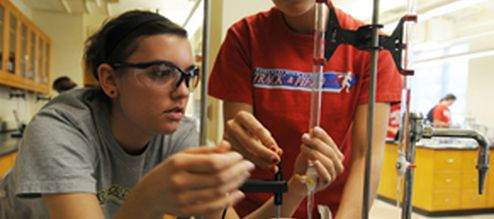Active and Alkylated Human AGT Structures: A Novel Zinc Site, Inhibitor and Extrahelical Base Binding
Document Type
Article
Publication Date
4-2000
Publication Source
EMBO Journal
Abstract
Human O6‐alkylguanine‐DNA alkyltransferase (AGT), which directly reverses endogenous alkylation at the O6‐position of guanine, confers resistance to alkylation chemotherapies and is therefore an active anticancer drug target. Crystal structures of active human AGT and its biologically and therapeutically relevant methylated and benzylated product complexes reveal an unexpected zinc‐stabilized helical bridge joining a two‐domain α/β structure. An asparagine hinge couples the active site motif to a helix–turn–helix (HTH) motif implicated in DNA binding. The reactive cysteine environment, its position within a groove adjacent to the alkyl‐binding cavity and mutational analyses characterize DNA‐damage recognition and inhibitor specificity, support a structure‐based dealkylation mechanism and suggest a molecular basis for destabilization of the alkylated protein. These results support damaged nucleotide flipping facilitated by an arginine finger within the HTH motif to stabilize the extrahelical O6‐alkylguanine without the protein conformational change originally proposed from the empty Ada structure. Cysteine alkylation sterically shifts the HTH recognition helix to evidently mechanistically couple release of repaired DNA to an opening of the protein fold to promote the biological turnover of the alkylated protein.
Inclusive pages
1719-1730
ISBN/ISSN
0261-4189
Publisher
EMBO Press
Volume
19
Peer Reviewed
yes
Issue
7
Sponsoring Agency
National Institutes of Health; National Science Foundaiton; Leukemia & Lymphoma Society; Skaggs Institute for Chemical Biology
eCommons Citation
Daniels, Douglas S.; Mol, Clifford D.; Arvai, Andrew S.; Kanugula, Sreenivas; Pegg, Anthony E.; and Tainer, John A., "Active and Alkylated Human AGT Structures: A Novel Zinc Site, Inhibitor and Extrahelical Base Binding" (2000). Chemistry Faculty Publications. 104.
https://ecommons.udayton.edu/chm_fac_pub/104
COinS



